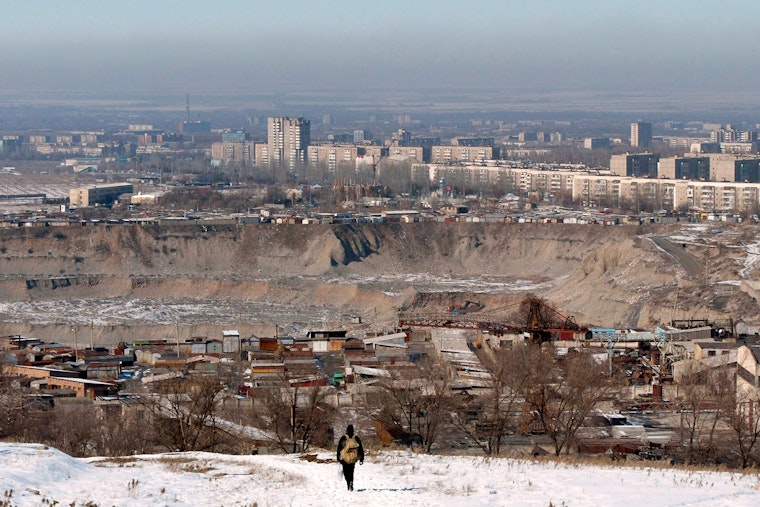Social Workers in Kyrgyzstan Fight for Respect
By Saltanat Childress & Bermet Ubaidillaeva

In southern Kyrgyzstan, Jypar [not her real name], a social worker, starts her day by paying the bus driver out of her own pocket to reach her first case. By 8:30 a.m., she is in the home of a “street child” whose alcohol-dependent father froze to death this past winter when he passed out in the street, and whose mother, who is also alcohol dependent, has no money to pay for food. Jypar feeds the child before hurrying to her next visit, an emergency call from the neighbors of an adolescent girl who gave birth to two children and abandoned them. Jypar works quickly to place the young children in an orphanage.
All in a day’s work for a social worker in Kyrgyzstan.
In Kyrgyzstan, international NGOs provide an array of social services and drop-in centers. Regardless, says Jypar, “The issues are widespread.” Migration, health problems, drug and alcohol dependence, and the economic crisis have taken their toll on the country. And though Jypar knows the work she does is of immense importance, she is frustrated by Kyrgyzstan’s dismissive attitude towards social workers, whose Herculean efforts are critical to Kyrgyz society. “Nobody takes social workers’ opinions into consideration or views social workers as full-fledged, state-level professional workers,” she says. “We are viewed as second-class citizens. Nobody wants to do this work.”
In Kyrgyzstan, the field of social work is underdeveloped as a profession, with subpar working conditions, funding, education, and public visibility. Yet social workers’ roles have steadily increased as the country’s social dislocation has intensified, particularly in areas with high unemployment and migration. When families break down, social workers are often the only link between vulnerable people and sources of help. Their work is critical, and deserves to be elevated.
In Soviet times, the role of social workers was largely limited to providing financial support for low-income families and medical rehabilitation services for people with disabilities and aging people living alone in their homes. Today, however, Kyrgyzstan is going through a period of deinstitutionalization, putting more pressure on ordinary social workers, like Jypar. But recognition of their work hasn’t yet caught up.
In 2014, armed with master’s degrees in social work, alumni of the Open Society Scholarship Programs’ Social Work Fellowship Program (SWFP) established the Social Work Alumni Association of the Kyrgyz Republic. Of the association’s 35 members, 24 are SWFP alumni and are working closely with the Ministries of Social Development, Education, and Health to offer technical support for various projects.
We have provided technical assistance to a new Kyrgyz government policy that helps to identify, prevent, and resolve social problems in disadvantaged families. Back in May, we also conducted a lecture series to build the capacity of social workers at the Ministry of Social Development. Our topics ranged from an introduction to social work to information on childhood disability policy in Kyrgyzstan. By sharing our knowledge and expertise, we aim to counter the shortage of resources and develop training for professional social workers.
In January 2015, Bishkek was the venue for a large conference of SWFP alumni from Central Asia, Georgia, Jordan, and Mongolia. It was inspiring to see the impact social workers are having across these countries. Our fellow alumni in Azerbaijan, Georgia, Mongolia, and Tajikistan have established strong and vibrant associations in their home countries, and we look to them as models as we develop our activities over the coming years.
We have a long way to go, but together we intend to make the essential work of people like Jypar easier, recognized, and respected in Kyrgyzstan.
Saltanat Childress is president of the Social Work Alumni Association of the Kyrgyz Republic.
Bermet Ubaidillaeva is executive director of the Social Work Alumni Association of the Kyrgyz Republic.